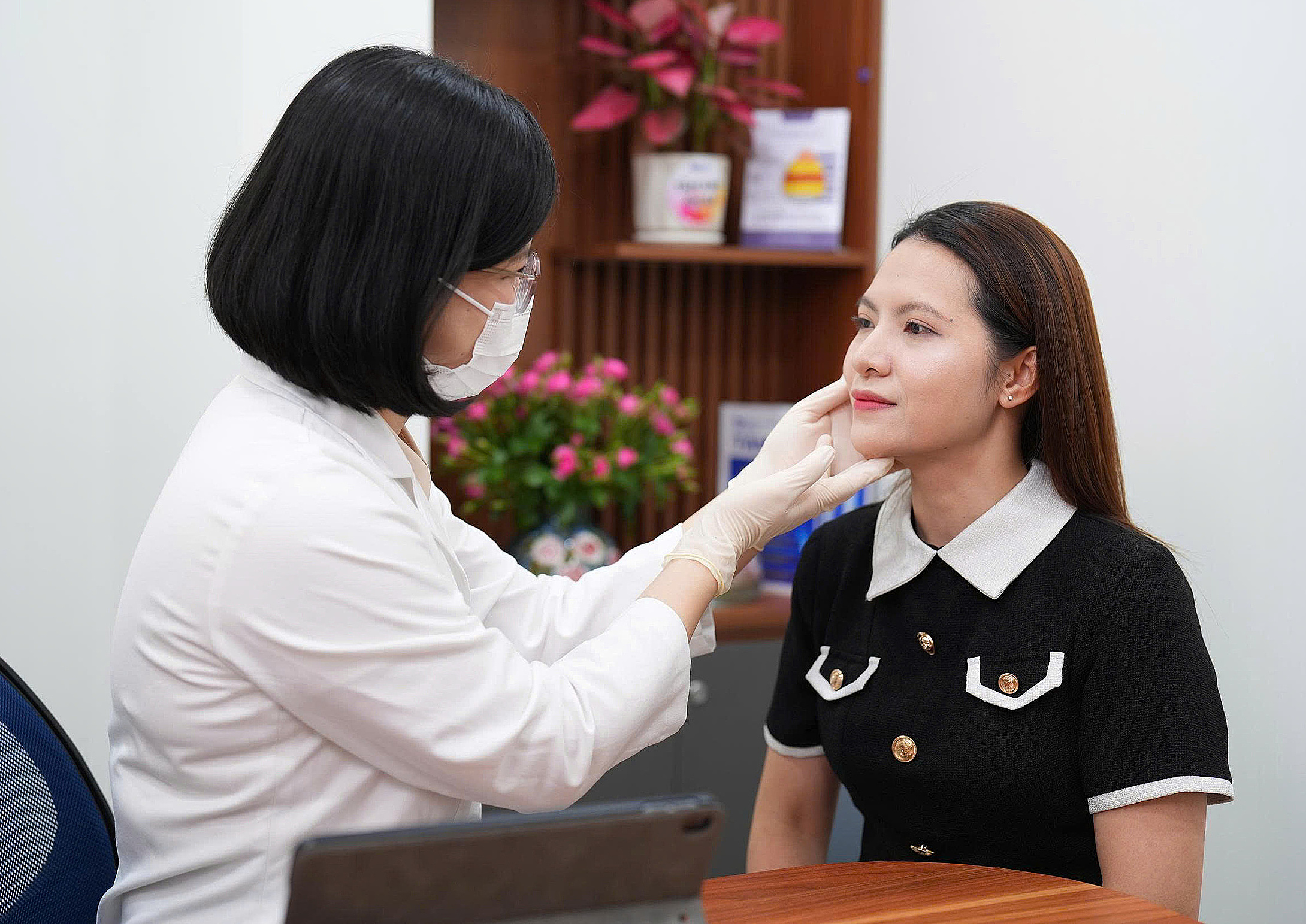According to Doctor Quach Thu Trang of the Dermatology Department at Tam Anh General Hospital in Hanoi, acne is very common due to hormonal changes, especially an increase in androgen hormones. This increase causes the sebaceous glands to become overactive, leading to clogged pores and inflammation. Acne commonly appears on the face, back, and chest in various forms, including blackheads, whiteheads, inflammatory acne, papules, pustules, and more.
If not treated properly, acne can worsen, leading to permanent scarring or complications such as infection, hyperpigmentation or hypopigmentation, impacting both appearance and mental well-being. Here are some common mistakes to avoid when treating acne, especially during adolescence.
Squeezing pimples
Many people want to get rid of pimples quickly, so they resort to squeezing them. However, squeezing pimples improperly, especially with unsterilized hands or tools, can introduce bacteria deeper into the skin, causing severe inflammation, pus formation, or abscesses. Squeezing pimples in the T-zone (forehead, nose, chin, and around the mouth) is particularly dangerous due to the numerous blood vessels connecting this area to the brain's circulatory system. Infections in this area can lead to cavernous sinus thrombosis.
 |
Doctor Trang examines a patient's skin. Photo: Tam Anh General Hospital |
Doctor Trang examines a patient's skin. Photo: Tam Anh General Hospital
Overusing acne products
Doctor Trang cautions against using unregulated cosmetic or acne treatment products with unknown ingredients and origins, as these can worsen acne. Many such products contain corticosteroids, mercury, or high concentrations of acids, which can cause irritation, dermatitis, dilated capillaries, and long-term consequences such as skin atrophy, darkening, and dependence. In some cases, after discontinuing these products, the skin becomes sensitive, prone to breakouts, and difficult to restore.
Washing your face too often
Many mistakenly believe that washing their face more frequently will make it cleaner and reduce acne. However, excessive washing can strip the skin of its natural protective barrier, leading to dryness, irritation, and increased sebum production to compensate, thus exacerbating acne. It's recommended to wash your face twice daily with a gentle cleanser free of harsh detergents. Wash gently with your hands and lukewarm water, avoiding harsh scrubbing or excessively hot water.
Not moisturizing
Many people skip moisturizing for fear of clogging pores. However, even acne-prone skin needs proper hydration to maintain its natural protective barrier. Using acne medication can cause dryness, flaking, and irritation if not combined with a moisturizer. Choose a gentle moisturizer labeled "non-comedogenic" and "oil-free" to support skin recovery and minimize medication side effects.
Using folk remedies
Applying toothpaste, betel leaves, lemon juice, aloe vera, egg whites, or taking sea baths are common folk remedies for acne. However, there is no scientific evidence to support their effectiveness. These natural ingredients may contain bacteria or irritants that can damage the skin barrier, worsen acne inflammation, and increase the risk of scarring. While seawater contains salt, it also contains many impurities and cannot replace specialized antiseptic solutions. In some cases, after a sea bath, acne-prone skin becomes irritated, inflamed, and spreads further, according to Doctor Trang.
At the Dermatology Department of Tam Anh General Hospital in Hanoi, patients receive thorough skin examinations to determine the cause of their acne and develop a personalized treatment plan. Depending on the specific condition, doctors may combine medical treatments with specialized cosmetic technologies, such as chemical peels, microneedling, fractional CO2 laser, LED light therapy, and electrophoresis, to reduce inflammation, prevent scarring, and regenerate the skin. For long-standing acne scars, doctors may employ scar excision, intralesional injections, or laser resurfacing to fill depressed scars, flatten raised scars, and improve skin texture.
Hang Tran
| Readers can submit questions about dermatology and skin aesthetics here for doctors to answer. |












